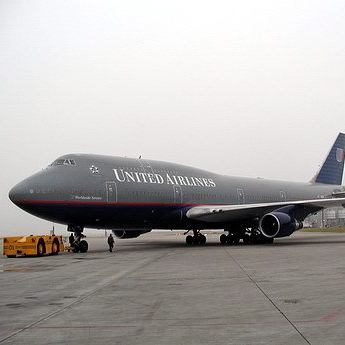Travel News
6 Reasons Why 2013 Will Be a Good Year for Travel
Always the contrarian, Peter Greenberg is feeling optimistic for once. The reason? A conversation with Scott McCartney, travel editor of The Wall Street Journal and Middle Seat columnist. Read on to see what they discussed and 10 reasons to be excited by the travel industry in 2013.
Scott McCartney: I have some good news today: I think 2013 is going to be a better year for travel. The 787 problems aside I think there are some reasons for optimism.
Peter Greenberg: Those reasons would be?
SM: We are finally getting to some critical mass about Wi-Fi on board airplanes. As American rolls out the extra legroom seats there are more and more options to buy up to a lot more comfort in coach. Reliability has gotten better at airlines–last year cancellations were way down. The TSA is really going to push hard on expanding its “Trusted Traveler” program PreCheck. All these changes will changes the travel experience for people who fly regularly.
 PG: Per your annual score card of airline performance, some airlines are running real well and some are not. So, we know there is room for improvement, who do you think is actually going to get their act together this year?
PG: Per your annual score card of airline performance, some airlines are running real well and some are not. So, we know there is room for improvement, who do you think is actually going to get their act together this year?
SM: I think United should get their act together this year. The airline says it is really getting past the computer issues. I think it’s getting past a lot of the integration issues. United decided that it was going to invest in its product, take on some refurbishment projects that have been put off for years because of financial trouble. Plus, it is starting to roll out satellite Wi-Fi.
PG: You mentioned satellite Wi-Fi, every airline is telling me that they are going to start putting satellite Wi-Fi in their international flights. My question is how, much is it going to cost?
SM: It’s really a question of what people will pay for it. With domestic Wi-Fi, if you offer it for $2 or $5, it gets great use; if you offer it for $9.99; less so. International satellite Wi-Fi is obviously is going to be more expensive. Are people going to pay $25 or $30 for access? It may be a really limited market.
 PG: Another positive start to 2013, the last year proved that the tarmac delay rule actually worked, because we had significantly fewer planes being delayed more than four hours, or three hours for domestic runs. I remember when the airlines were all screaming “Don’t do this rule, it’s going to hurt our business, it’s going to kill our business.” It didn’t, did it?
PG: Another positive start to 2013, the last year proved that the tarmac delay rule actually worked, because we had significantly fewer planes being delayed more than four hours, or three hours for domestic runs. I remember when the airlines were all screaming “Don’t do this rule, it’s going to hurt our business, it’s going to kill our business.” It didn’t, did it?
SM: The remarkable thing about this industry is that airlines can really adapt to just about any rules that you put in front of them. From the beginning, airlines complained about having to cancel all these flights, but last year the industry canceled 1.4 percent of its flights–down from over 2 percent the year before. It was an excellent year.
It’s hard to see any impact on cancellation rates from the tarmac delay rule, and at the same time, if you say it has vastly reduced the number of times that people get stranded on airplanes.
PG: Another piece of good news…earlier this week American Airlines reported a quarterly profit for 2012 of $262 million in the fourth quarter, I don’t know of any airlines that report profits in the fourth quarter.
SM: It would have been a loss without the restructuring and one-time gains that American had. It is remarkable for the fourth quarter because the airline industry makes its money in the summer and they stock it away, like squirrels, to make it through the winter….Think of it as squirrels with baggage fees.
American is getting financially back in shape. I think that if it gets together with US Airways, the merged airline will become a formidable competitor to both United and Delta. Ultimately, it’s a good thing for the industry to have three big airlines really fighting for business.
For more 2013 travel news, check out:
By Peter Greenberg for PeterGreenberg.com












